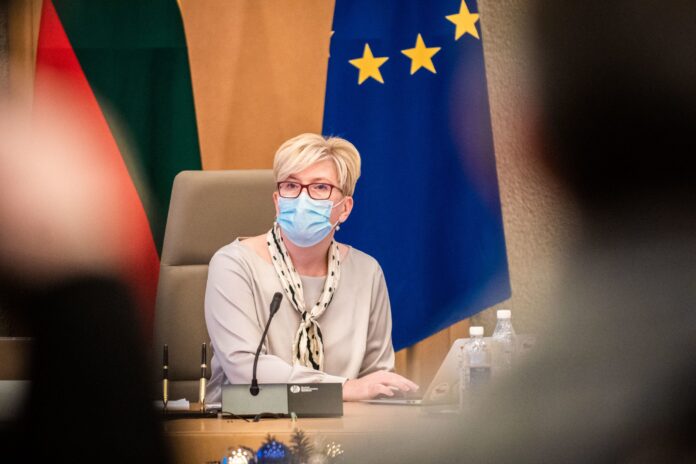
No Flights from UK
The Lithuanian government has halted all passenger flights from the UK, where a new and more contagious strain of COVID-19 has been detected. The flight ban came into effect at 4 AM on December 21 and will be in effect until December 31. Lithuania’s ministers held a meeting the previous night in response to reports about the faster-spreading mutation of the coronavirus driving infections in London and south-east England. According to the BBC, British health officials indicated that there was no evidence the new variant was more deadly or resistant to vaccines, however, it appears to be up to 70% more transmissible.
Lithuanian prime minister Ingrida Šimonytė noted that Lithuania was coordinating its moves with Latvia and Estonia, which are also banning flights from the UK. A number of European countries banned passenger travel from the UK on December 20, including the Netherlands, Germany, France, Italy, Belgium and Ireland. Transport Minister Marius Skuodis said that Lithuania will seek a coordinated EU-level response. It is also holding consultations with Germany and Poland on the requirements they plan to apply to Lithuanian citizens and residents crossing their borders.
The new variant of the coronavirus was identified in mid-October from a sample taken in September, according to the BBC. The World Health Organization (WHO) says the same mutation has also been detected in the Netherlands, Denmark and Australia. According to Skuodis, some 7,000 passengers would have come to Lithuania on scheduled flights from the UK over the coming week: 5,000 to Vilnius Airport, 1,700 to Kaunas Airport and 350 to Palanga Airport.
According to the Interior Ministry, 3,485 people have flown from the UK to Lithuania since December 14. Minister Agnė Bilotaitė specified that travellers from the UK already in Lithuania are not under any additional restrictions than the general lockdown rules. Among these is a ban on meeting people from outside one’s household (except outdoors and no more than one) and leaving home for non-essential reasons. Essential reasons include work, providing care, food shopping and taking walks.
Checkpoints Enforce Travel Ban
After Lithuania banned non-essential travel between municipalities, the police turned back over 10,000 cars at checkpoints set up around the country, according to the police. Arūnas Paulauskas, deputy chief of police said that officers heard many different versions of why people need to travel, according to Paulauskas. Until January 3, people are only allowed to travel between municipalities to provide care, seek medical help, for work, when leaving or entering Lithuania, or other essential reasons.
Some 900 police teams were active during the weekend, assisted by the Lithuanian Riflemen’s Union, the State Border Guard Service (VSAT), and the Military Police. The police will not set up checkpoints on weekdays and will only do sporadic checks during the week, as most people travel for work, as allowed under the lockdown restrictions, said Paulauskas.
Officials have previously said that police officers would evaluate a person’s reason for travel on a case-by-case basis, with Prime Minister Ingrida Šimonytė saying that the enforcement of rules will be mostly up to individuals themselves.
Representation at US Congress
On December 21, the Lithuanian government approved a proposal to allocate funding for a permanent position of representative of Lithuanian Parliament (Seimas) to the US Congress.
The proposal was put forward by conservative MP Žygimantas Pavilionis, chairman of the parliamentary Foreign Affairs Committee and Lithuania’s former ambassador to the US.
The cabinet agreed to allocate 44,000 euros for parliament to fund the position.
Prime Minister Ingrida Šimonytė said that the government had already agreed to fund the position when drafting its updated spending bill. In it, however, the funding was only allocated to the Foreign Ministry.
With information from LRT.lt



























